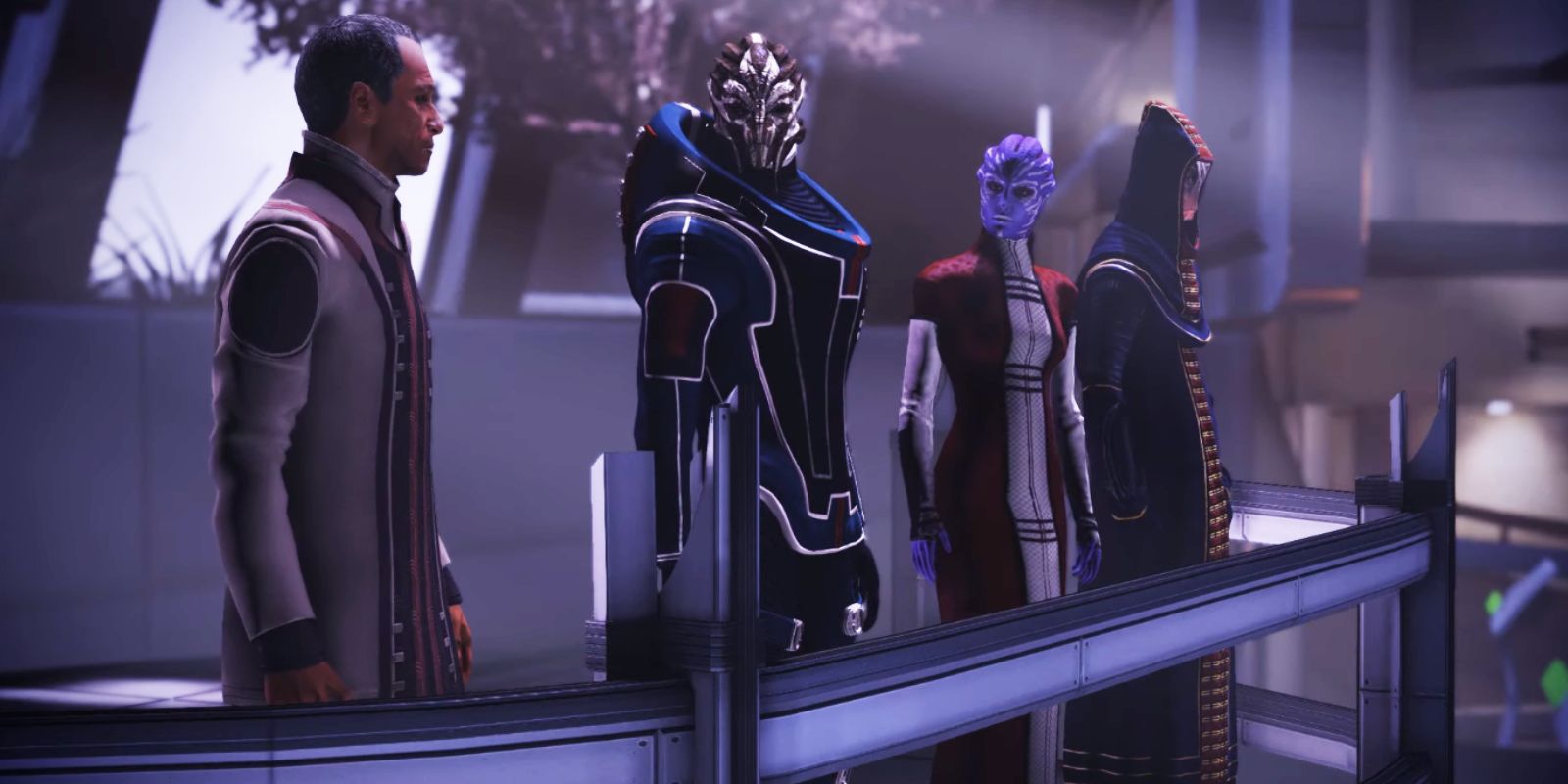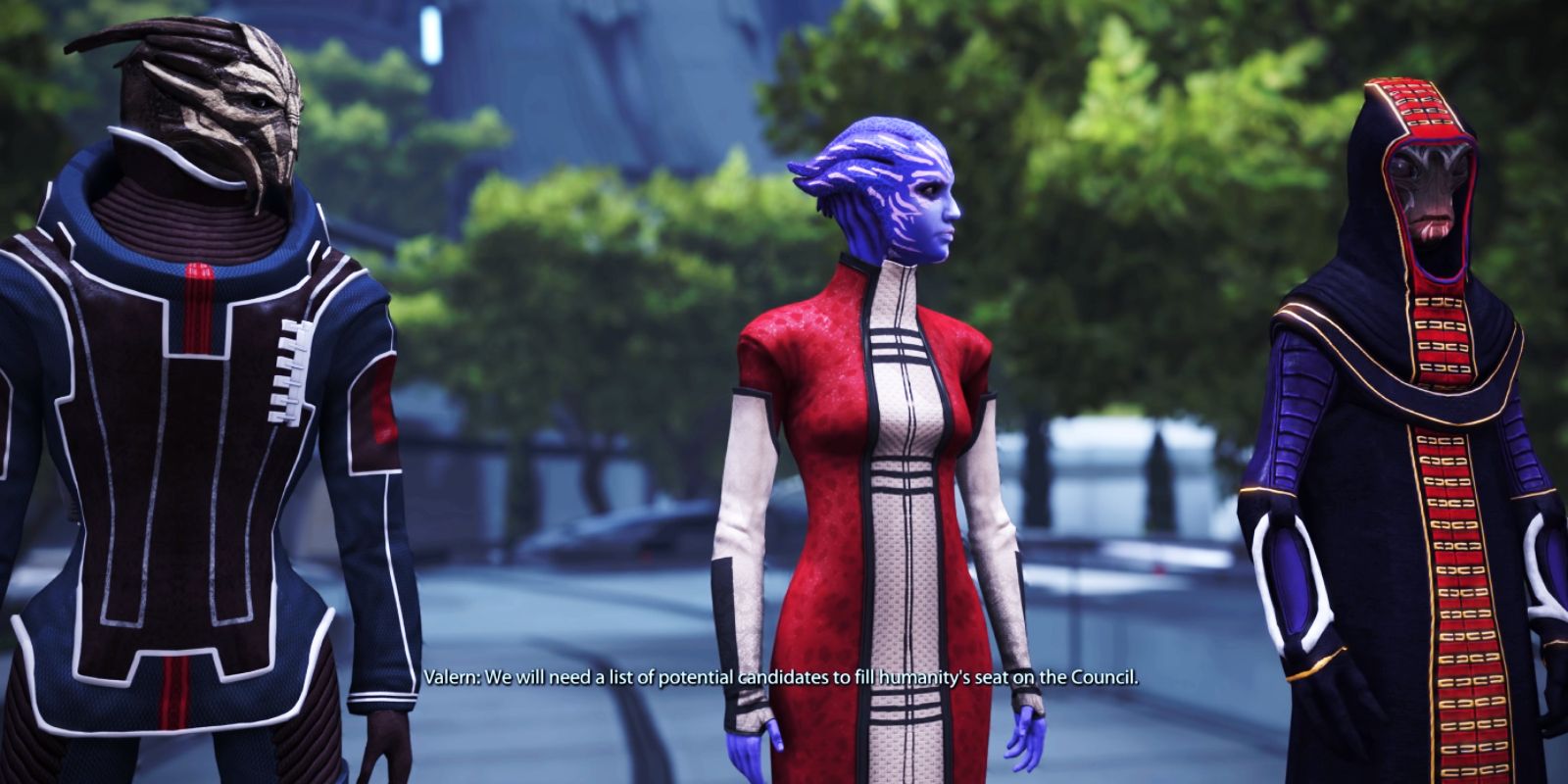The conclusion of the first Mass Effect game presents players with several choices that seem as though they might have a lasting impact on the events of the trilogy moving forward. Two of these directly impact the Citadel Council - Shepard can choose to save or sacrifice them in the battle against Sovereign, and afterwards they get a direct say in who the new human member of the Council will be. Either Ambassador Udina or Captain Anderson can be given the position - but how much does this decision actually matter in the grand scheme of things?
Many decisions across the Mass Effect franchise carry significant weight. The loss or survival of crewmates carries over across the trilogy, for example - if Kaidan or Ashley is sacrificed on Virmire, they will not be in the other games of the series. Shepard's Paragon or Renegade decisions impact which conversation options are unlocked for players, and actions such as sparing Wrex and the Rachni Queen significantly shift events in the second and third games. Other choices, however, are slightly more disappointing. What might seem like a big decision in the moment might actually turn out not to matter much at all when it comes to the overall timeline of the series, which can leave players feeling like their actions are pointless.
One such example of a disappointingly useless decision comes at the tail end of Mass Effect 1. After Sovereign is defeated, humanity is given the opportunity to appoint a human member to the Citadel Council, regardless of whether the old Council survived the battle or not. The decision comes down to either Anderson or Udina - but the repercussions in both cases are surprisingly short-lived. If Anderson is selected, he'll only serve on the Council in Mass Effect 2. After that, he leaves the position, meaning Udina is the human Councilor in Mass Effect 3 regardless of which choice was made in ME1. Additionally, Anderson (or Udina) have so little focus in Mass Effect 2 that even then the decision feels lackluster to most fans.
What Does The Human Council Member Actually Change?
If Anderson is placed on the Council in Mass Effect 1, he will offer Shepard verbal support in Mass Effect 2 during their meeting with the Council - however, this has little impact on actual gameplay, as he provides no real bonuses to Shepard's mission. The only real benefit to his support is the fact that, regardless of the fate of the original Council members in ME1, Shepard can have their Spectre status reinstated by Anderson in ME2. However, this is about all Anderson does in the second game, and before the events of the third game he will leave the role regardless of any player actions and hand the title over to Udina.
If Udina is chosen in ME1, he will remain relatively hostile to Shepard up through Mass Effect 3 - choosing him over Anderson does not seem to improve his disposition, and there are no real bonuses for cooperating with him. This also means that he will not reinstate Shepard's Spectre status in the second game. However, players who chose to save the original Council members can have their status reinstated against Udina's wishes, regardless. Ultimately, this is the only significant impact of the choice, and the lack of long-lasting consequences has made this one of the more disappointing decisions in the Mass Effect series.


